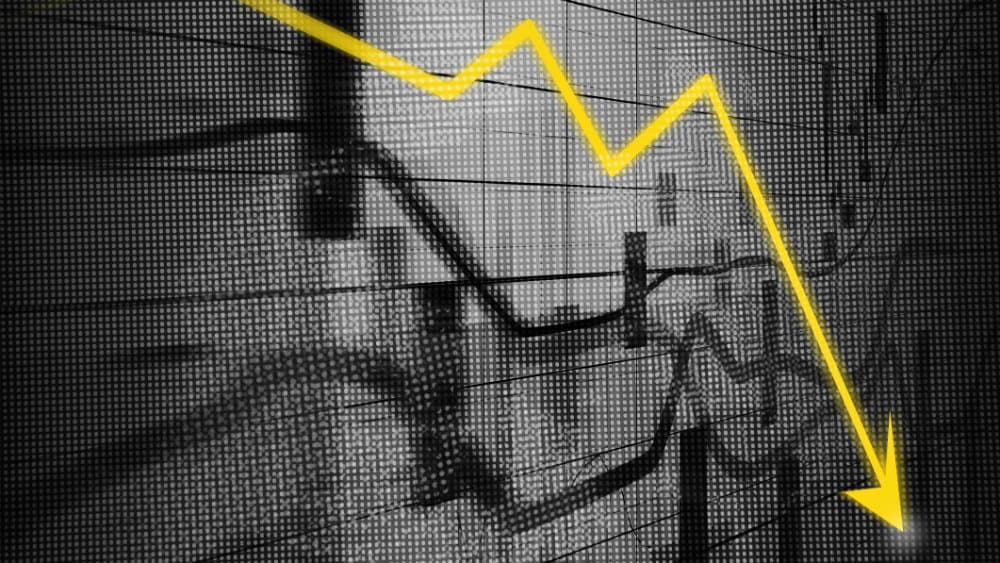In the few months after its IPO, THG Holdings (LSE: THG), formerly known as The Hut Group, got off to a strong start. Since 2021 has progressed, the market has been less kind to the stock. And the THG share price took a deep dive starting in early September.
Through October, THG shares crashed by an astonishing 57%. And between market close on 7 September, when we saw a momentary high point, and the end of October, the stock has lost a whopping 68% of its value. I’m asking myself two questions. Why has THG slumped so badly after a promising start? And am I looking at an oversold bargain to snap up now?
One Killer Stock For The Cybersecurity Surge
Cybersecurity is surging, with experts predicting that the cybersecurity market will reach US$366 billion by 2028 — more than double what it is today!
And with that kind of growth, this North American company stands to be the biggest winner.
Because their patented “self-repairing” technology is changing the cybersecurity landscape as we know it…
We think it has the potential to become the next famous tech success story. In fact, we think it could become as big… or even BIGGER than Shopify.
Click here to see how you can uncover the name of this North American stock that’s taking over Silicon Valley, one device at a time…
The THG share price suffered a big fall on 12 October, losing almost 35% on a single day. Markets were nervous ahead of THG’s capital markets day that day, amid growing short interest from bearish investors. The day was an opportunity for the company to reassure shareholders and put their minds at rest. And the only possible conclusion is that THG blew it, and blew it big.
One major shareholder said investors wanted “greater visibility over cross charges between the beauty and nutrition businesses and Ingenuity at the capital markets day, which they failed to provide.”
What’s the problem?
At the heart of the problem, I think, lies the question of the company’s identity. Is it an online retailer, selling a range of nutrition and beauty products through its collection of online sites? Or is it a technology company, whose key strength lies in its Ingenuity retail platform.
Plans to separate the Ingenuity division from the firm’s beauty and nutrition operations have made investors a bit twitchy. And the Ingenuity platform has come under pressure, with some analysts doubting its long-term prospects. SoftBank invested $730m in THG in May and took an option to acquire 19.9% of Ingenuity for $1.6bn. That boosted market optimism, but there are now fears that maybe SoftBank got it wrong.
THG plans a separate listing for its beauty division in 2022, possibly with other spin-offs coming later. But does that just add more uncertainty at a time when shareholders need clarity?
THG share price recovery?
I do think we’re looking at early profit prospects here. At the interim, THG posted earnings of £81.2m, up 38.6% on H1 2020. That’s after revenue grew 44.7% year-on-year, and 95% over two years. There was net cash of £384.6m. The bottom line showed a loss per share of 6p, mind.
For Q3, THG has reported a 38% rise in revenue to £507.8m. And it has raised its expectations for 2022 Ingenuity commerce revenue by 20% to 25%, for a range of £108.0m to £112.0m.
Looking at those figures really does make me think this is a growth company with attractive prospects. And I reckon there’s a good chance of a decent recovery over the next 12 months.
I’m just dissuaded from buying by two things. One is that I can’t put an earnings-based value on the THG share price right now. And I generally keep away from heavily-shorted stocks. I’m going to keep watching.
Alan Oscroft has no position in any of the shares mentioned. The Motley Fool UK has no position in any of the shares mentioned. Views expressed on the companies mentioned in this article are those of the writer and therefore may differ from the official recommendations we make in our subscription services such as Share Advisor, Hidden Winners and Pro. Here at The Motley Fool we believe that considering a diverse range of insights makes us better investors.
This post was originally published on Motley Fool







